May 21, 2025 | 03:00 GMT +7
May 21, 2025 | 03:00 GMT +7
Hotline: 0913.378.918
May 21, 2025 | 03:00 GMT +7
Hotline: 0913.378.918
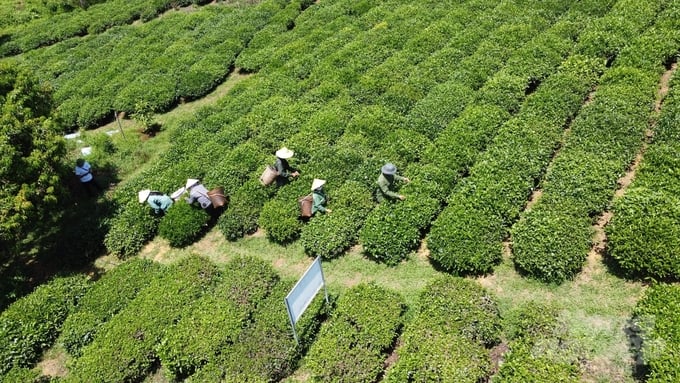
Tea Hill in Binh Son commune is seen from above. Photo: Quoc Toan.
Le Dinh Tu's house is on the side of a mountain, surrounded by tea hills and acacia forests. Unlike the general quiet scene of the mountainous commune of Trieu Son district, Mr. Tu's tea factory always resonates with the sound of machines from morning to night.
Coming to Binh Son commune in the early 1990s, Mr. Tu left the city and started a business in the forest. At that time, this place was full of forests and mountains, with weeds growing taller than a person's head. After receiving support from the government, Mr. Tu accumulated land, linked with local people to invest in large-scale tea growing areas, and initially built the Binh Son tea brand.
Most people in Binh Son commune 30 years ago had unstable incomes and shabby houses. To have electricity for production, Tu pays out of pocket. In addition, he and the local government mobilized villagers to contribute to paving roads, building dams, and creating irrigation systems to serve farming and animal husbandry.
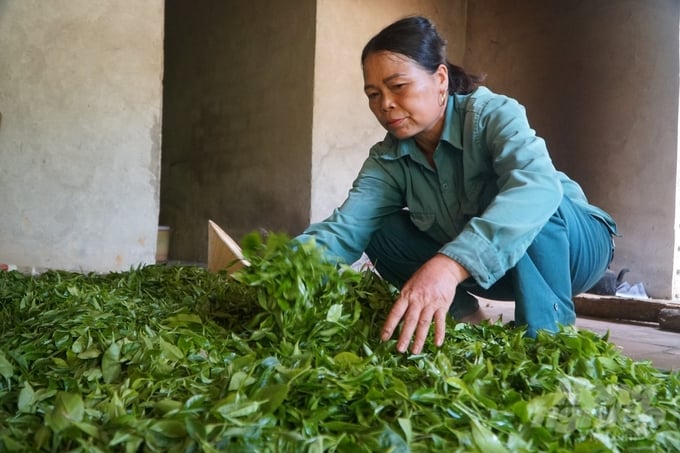
Binh Son tea is harvested and carefully selected before being processed. Photo: Quoc Toan.
"Land in Binh Son commune grows many trees, but the value is low. Tea trees are most suitable for the soil, but local people are not interested because prices often pressure them. Farmers live among the tea hills but lack money for living expenses," Mr. Tu recalled.
Before Mr. Tu grew tea, there used to be a tea cooperative in Binh Son commune, but it was dissolved because of ineffective business. People need to have the mindset to do business and connect. In addition, the Binh Son tea brand has not become popular in the market.
"If you grow tea on a large scale, you must establish a cooperative and expand the consumption market. When there is a brand, cooperative members will proactively participate in fairs to promote it," Mr. Tu shared.
Binh Son tea has a sweet, rich taste and a bright yellow color, different from most types of tea in Vietnam. In 2016, Mr. Tu founded and became the director of Binh Son Agriculture - Forestry Service Cooperative. To supplement income, the cooperative uses forest land to raise bees.
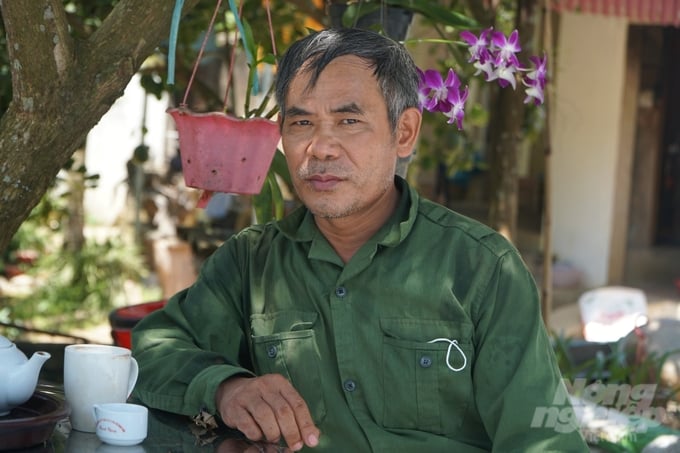
The Central Vietnam Farmers' Union voted Le Dinh Tu as one of the 100 outstanding Vietnamese farmers in 2023. Photo: Quoc Toan.
During the past ten years, the Cooperative has invested in processing technology, improving product quality, and creating eye-catching designs. Currently, the Cooperative has nearly 80ha of tea, of which 12ha has obtained a VietGAP certificate, 20 official members, and 100 production associate members. Every year, Mr. Tu's family earns hundreds of millions of dong. Laborers in the commune have jobs with a stable salary of VND 6 - 8 million/month.
Tea and honey products of Binh Son Cooperative are present in about 30 provinces and cities across the country. The average annual revenue is nearly VND 3 billion.
"The hard work of the cooperative members for 30 years has paid off. The happiest thing is that customers who enjoy Binh Son tea all praise it," said Mr. Tu.
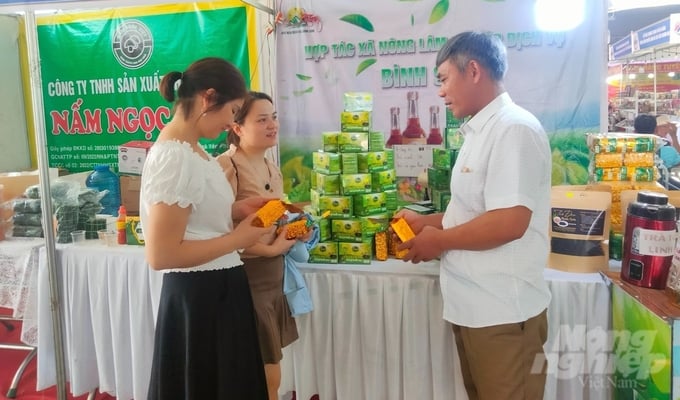
Customers highly appreciate tea and honey products under the Binh Son brand for their quality. Photo: Quoc Toan.
After success with two Binh Son commune indigenous products, Mr. Tu decided to develop them into OCOP products. In 2019, Binh Son's clean tea and pure honey were recognized as a 3-star OCOP product of Thanh Hoa province.
Recently, Mr. Tu was voted by the Vietnam Farmers' Association as one of the 100 best Vietnamese farmers in 2023.
"I never thought I would receive such a great honor," he said. This award is an honor and pride for me and all cooperative members."
Unsatisfied, Mr. Tu cherished the idea of building an eco-tourism area of tea hills based on the land potential and cultural identity of Binh Son commune.
"In addition to the desire to support land and facilities, the cooperative intends to develop tea plants in an organic direction, applying science and technology to move towards green and sustainable production," said Mr. Tu.
After many years of working with tea trees, Mr. Tu believes that tea growers need passion and skill. Along with that is the determination to constantly learn, innovate, and create.
The Department of Agriculture and Rural Development of Trieu Son district evaluated that tea is currently the main crop here, contributing to the transformation of crop structure and raising income for local people. In the coming time, the district will encourage the expansion of the tea growing area from 300ha to 400ha, combining eco-tourism and tea experience tourism to increase income for people.
Translated by Tu Quyen
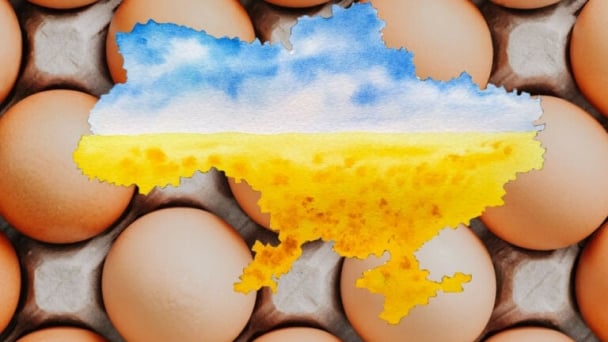
(VAN) Oliyar, a prominent Ukrainian oil and fat manufacturer, has revealed plans to build a farm for 2.3 million laying hens in the Lviv region. The additional production quantities promise to change the competitive landscape of the egg market of the Eastern Europe region.

(VAN) On May 15, Ministry of Agriculture and Environment of Vietnam hosted the 'Connecting Vietnam - Germany agricultural, forestry and fishery trade' seminar in Berlin, Germany.

(VAN) In the face of counterfeit and imitation products, Khanh Hoa Salanganes Nest Company hopes for the prompt completion of the legal framework, strict enforcement against violations, and protection of the bird’s nest brand.

(VAN) Japan's efforts to lower the price of rice through the release of its stockpile may finally be making some progress, albeit at a snail's pace.

(VAN) U.S. tariffs are not only a 'shock', but also an opportunity for Vietnamese businesses to renew their mindset toward comprehensive development.

(VAN) As Bac Giang lychee enters the harvest season, Minister Do Duc Duy expects that the fruit will contribute greatly to agricultural exports due to standardized production and deep processing.

(VAN) Consumers have shown a preference for free-range eggs, but those farming systems are more vulnerable to biosecurity risks like bird flu.